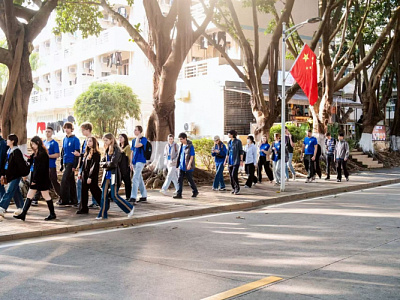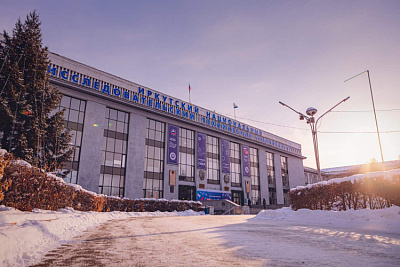Alexander Parshin, Scientific Director of SSG INRTU: "Our technologies help businesses accelerate geological prospecting"
The Siberian School of Geosciences (SSG IRNTU) has developed basic technologies for a full range of eco-friendly and express methods of searching for "blind" deposits of ore minerals. The introduction of technologies will allow for one field season without compromising nature to carry out geological prospecting work from the "green leaf" stage to resources assessed by high categories in the most difficult natural conditions. Hundreds of students, including interns from leading universities of the Russian Federation, are ready to work on such projects in areas from the Kola Peninsula to Kamchatka.
As noted by the founder of SSG Alexander Parshin, standard search operations involve the departure of a party of geologists, geophysicists, geochemists, drillers to the site. Specialists are clearing drilling sites, cutting profiles for geophysical measurements, bases are being built, roads are being laid and trenches are being beaten. For this purpose, heavy special equipment is used and serious damage to the environment is caused. Taiga ecosystems suffer, the destruction of permafrost and the activation of erosion processes may begin in the regions of the Far North. It takes decades to restore the most fragile ecosystems, for example, the Arctic ones.
A special methodological complex will help solve the environmental problem, as well as increase productivity and economic efficiency of work. It combines geoinformation forecasting of promising areas, complex UAV-aerogeology, detailed areal electromagnetic sounding, methods of express and deep geochemistry, drilling technologies with light mobile machines.
The overall concept of the project combines the innovative ideas of the SSG team, the long-term achievements of polytechnic students and partner organizations in the i.GeoDesign consortium.
The need for urgent "assembly" of a full range of express and eco-friendly search technologies is associated with the transition of the university to the concept of junior geological business. The decisive factor was the beginning in 2021 of large-scale work in the Arctic territories along their entire length - from the North-West of Russia to Kamchatka. In both cases, it is critically important to save time and prevent environmental harm.
In 2022, a large-scale implementation of the complex will take place in the northern part of the Krasnoyarsk Territory, the Irkutsk Region, Kamchatka and the south of Transbaikalia. Many elements will be used at sites in Buryatia. Also, together with consortium partners, initiative research projects are planned at reference facilities, for example, on the territory of JSC "Hiagda" (mining division of GC "Rosatom").
INRTU students and staff are already preparing for summer expeditions. In early February, the Polytechnic students carried out logging work in the Tulun area. This will be followed by a series of geological surveys. These are snow-geochemical studies that will help future specialists get their first production experience and qualify for summer expeditions.
In March, mini-projects with the use of unmanned technologies will start in INRTU. A month later, ground-based geophysical and geological work will begin. At the geological landfill in Irkutsk, students will have to learn how to handle hydraulic drilling rigs. For this purpose, the university purchased a set of core drilling equipment.



